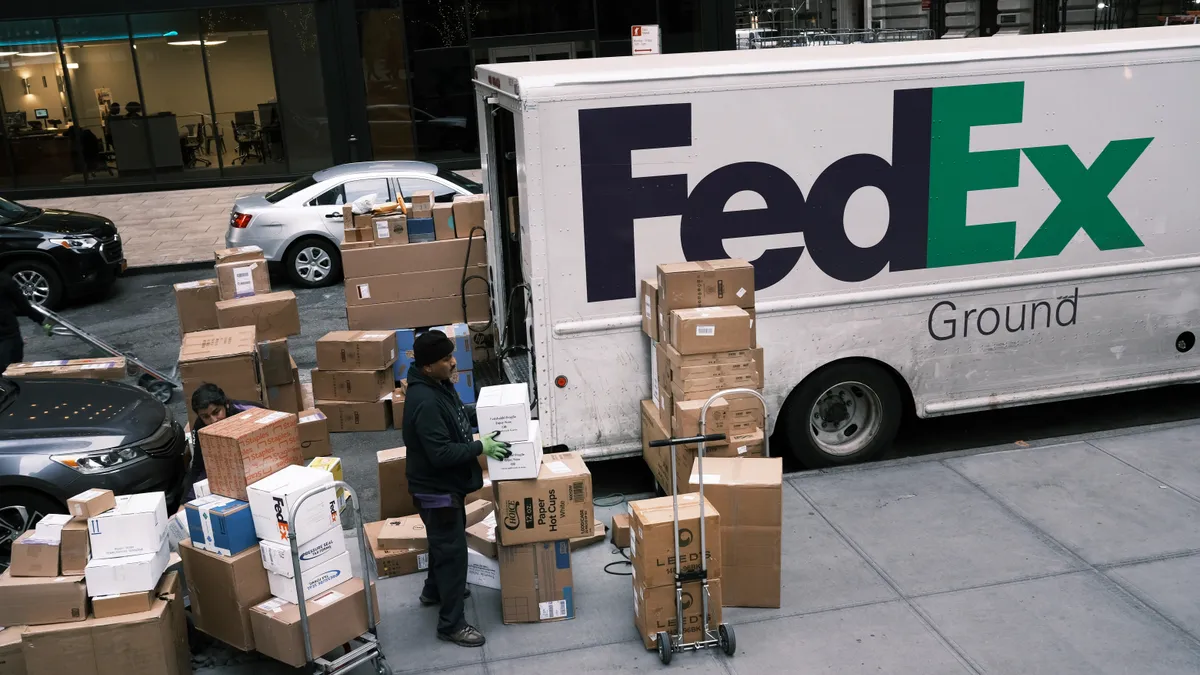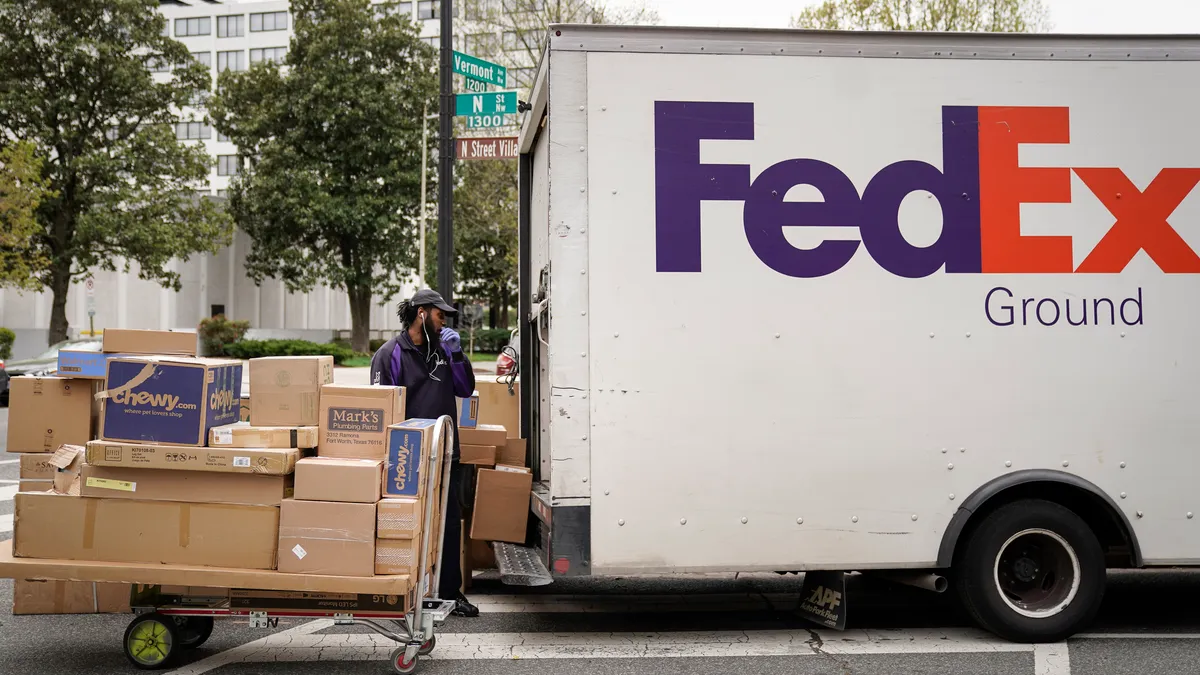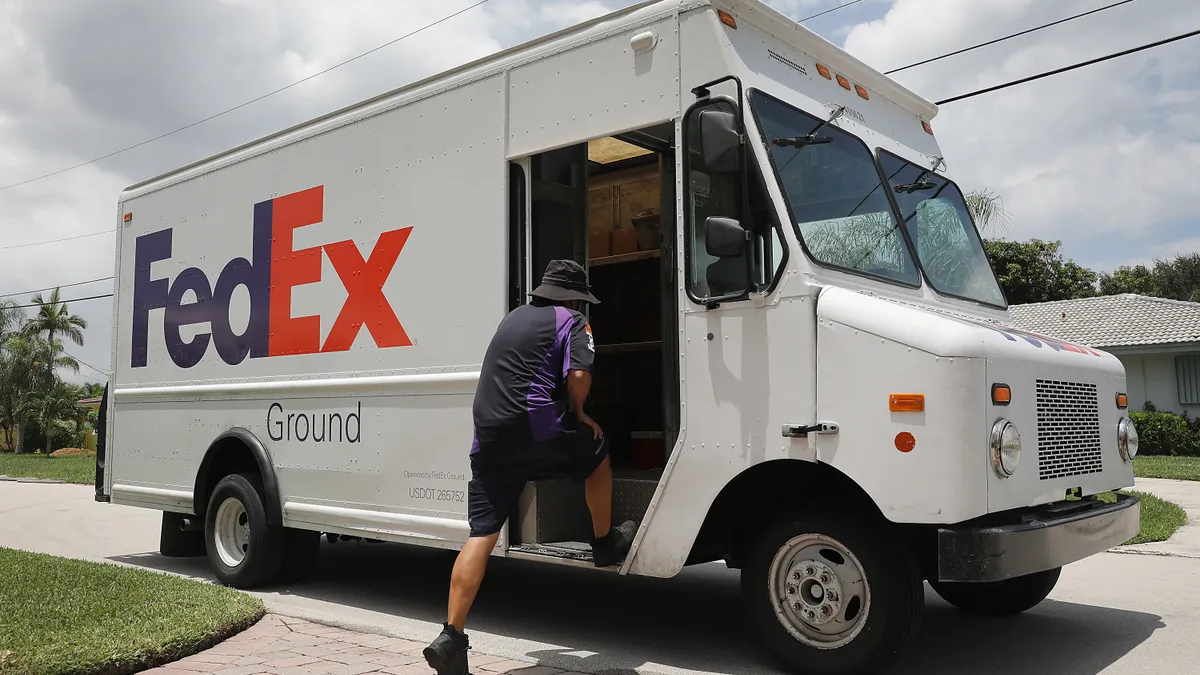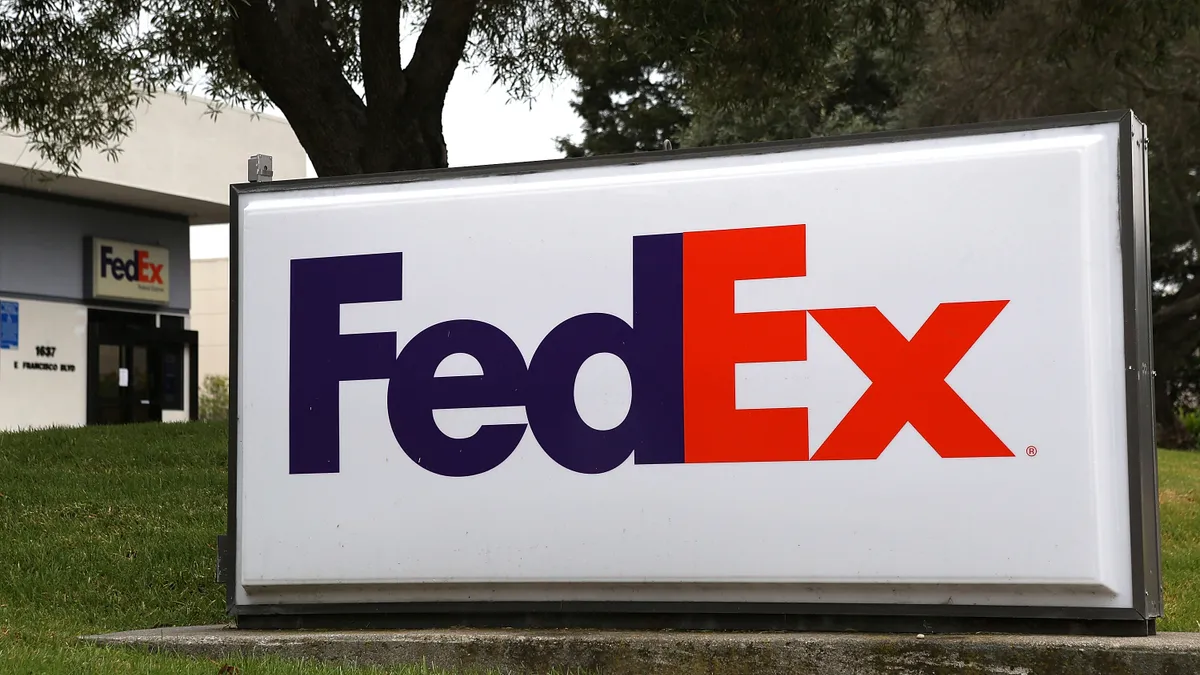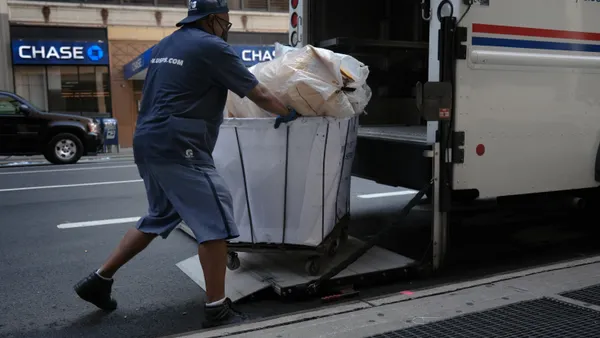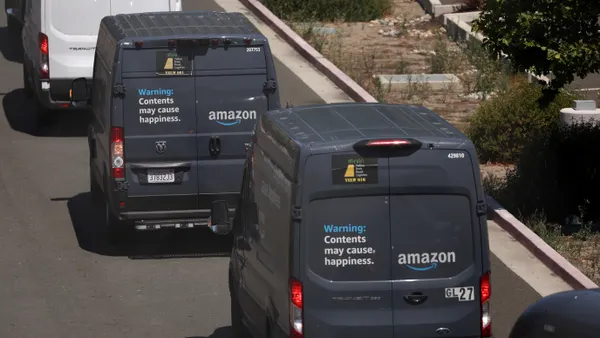Although FedEx Ground has cut ties with outspoken delivery contractor Spencer Patton, an organization he founded could continue to pressure the company to shake up its operating model.
Patton, president and founder of Patton Logistics, vied for more favorable terms to his agreements with Ground before the logistics giant terminated his contracts Aug. 26. But he also floated broader changes to the company's relationship with the independent businesses it uses for delivery, pickup and linehaul services. This includes having Ground grant its contractors benefits similar to franchisees.
Patton highlighted that he was willing to mount a potential legal challenge to reclassify contractors, a major reason behind the creation of the Trade Association for Logistics Professionals (TALP), which he announced in August. The push for reclassification would come from TALP petitioning state and federal officials, the FTC, various regulatory agencies and possibly in legal venues, Patton said in an Aug. 3 email, adding that “there could be enormous implications” if it was determined contractors are in fact franchisees.
Patton emphasized in an interview a few weeks later that he still believes in the Ground contractor model. However, he noted that franchisees enjoy benefits that contractors don't, including a greater ability to share information with each other.
"The franchiser has to report on the health of their franchisees, they have to disclose the failure rates and franchisers also can't make 30-day notice contractual changes," Patton said. "There are much greater state and federal protections for a contract with a franchisee and we as contractors don't enjoy that."
If Ground doesn't provide those protections to contractors voluntarily, Patton said he'll "explore the pathway" on if contractors can be deemed franchisees. That would likely meet stiff resistance from FedEx, as the company made clear in a statement it prefers the way its contractor model currently operates.
“Our service provider model was established as a distinct and unique vendor relationship, and we are confident that this model is best suited to enable a productive, flexible and service-oriented relationship between FedEx Ground and its network of independent service providers,” FedEx said.
Passing the three-prong test
In any push to become classified as a franchisee, the three-prong test is an essential ingredient, legal experts told Supply Chain Dive.
Those three prongs, according to a Federal Trade Commission franchise rule compliance guide, include:
- The right to use the franchiser's trademark or other commercial symbol in operating the business.
- A commitment from the franchiser to exercise significant control in areas such as personnel policies and area of operation, or provide significant assistance in operating the business.
- The requirement of a minimum payment to the franchiser during the first six months of operations. Required payments may go beyond a fee and entail other payments a franchisee has to pay to the franchiser or an affiliate by contract, including rent, training, equipment and supplies.
Patton, who is also founder and president of contractor consultancy Route Consultant, said in an August video that Ground contractors "have a very compelling case on all three prongs," but didn’t elaborate further.

Ground contractor employees and vehicles are able to adorn FedEx Ground branding. In fact, Ground encourages it by paying a flat rate to contractors who encourage employees to wear branded apparel or that operate vehicles with a Ground logo on it, according to Route Consultant's website. Additionally, starting a contractor business is an expensive endeavor. Delivery routes can cost $250,000 "on the lower end" and reach into the millions of dollars, per Route Consultant. Other costs to consider include uniforms, truck fixes and workers' compensation insurance.
However, FedEx said in its statement that contractors are not required to pay a fee for the right to do business with Ground. Plus, contractors “are not obligated or required to sell products and services, grow a customer base to enhance revenues, or collect payments from customers,” it said.
Satish Jindel, president of SJ Consulting Group, isn't convinced Ground could move to a franchisee model. Its offering is vastly different than other companies using franchisees like McDonald's, said Jindel, a founding member of Roadway Package System, which FedEx acquired and rebranded to FedEx Ground in 2000. Shippers use Ground for its complete network of pickup, sortation, linehaul and delivery capabilities, not the specific services of a contractor serving one area.
"That concept at McDonald's would be like if you go to one McDonald's to buy your hamburger, another McDonald's to buy your fries and another one to buy your soda and another one to buy your cooking," Jindel said.
Franchise win could create domino effect
With Ground providing service throughout the U.S. and Canada, any Ground franchiser-franchisee relationship would have to navigate a web of local business regulations, said Mario Herman, a D.C.-based attorney who works with franchises.
"It's a hodgepodge of state laws — frequently you'll have a situation where the franchiser's in one state and the franchisee's in another state and the laws of yet a third state may apply," said Herman.
The added state-by-state regulatory burdens and costs to move to a franchiser model means businesses like FedEx want to avoid such a transformation most of the time, said Robert Emerson, a professor of business law at the University of Florida.
"I can see how a business that doesn't consider itself a franchise business would maybe instinctively say, 'That's opening up a can of worms if we concede that we are in effect franchisers,'" he said.
But if a judge or arbitrator determined that if a Ground contractor passed the three-prong test and is a franchise in one state, that could have "a domino effect" in the rest of the country and force FedEx to change its model, Herman said. However, he added that even with improved disclosure requirements and other perks, becoming a franchisee is "not a panacea" that suddenly solidifies a strong relationship.
"Disclosure is important," Herman said. "You're going to want to know what you're getting into when you buy something, but it's also the terms of the relationship itself and how much fraud and abuse there is."



